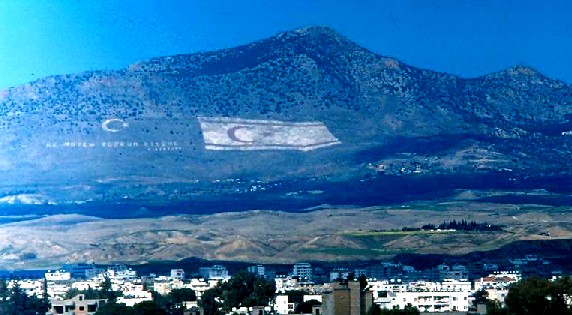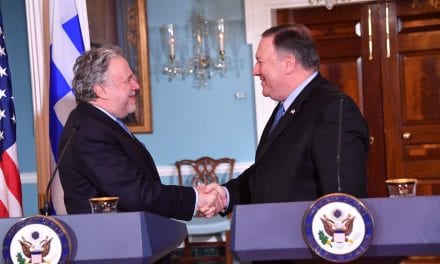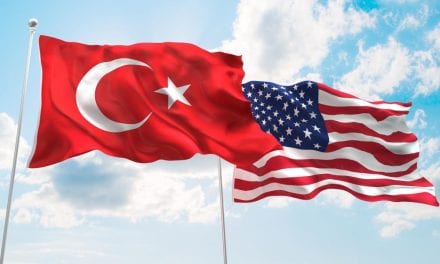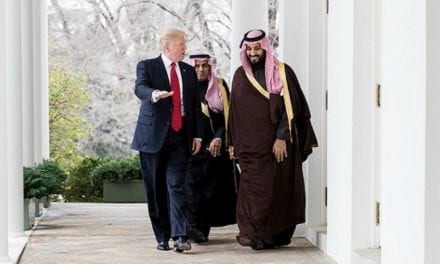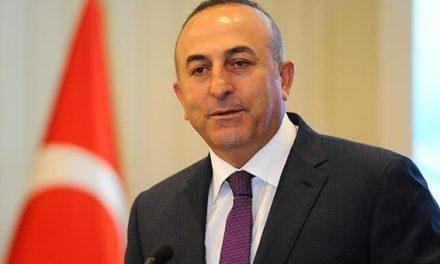By Cemil Ertem, Daily Sabah
First things first, I need to say that the Islamic State of Iraq and al-Sham's (ISIS) attack on Kobani – also known as Ayn al-Arab, the recent turmoil in Turkey's streets and the Greek Cypriot administration's withdrawal from the ongoing peace negotiations are all driven by the same motive. On Tuesday, Greek Cypriot President Nicos Anastasiades announced that their government suspended peace talks regarding the reunification of the ethnically divided island after Turkey sent a battleship to monitor oil and gas exploration missions off the shore of Cyprus.
The explanation made by the Turkish party was as follows: "It is unacceptable that the Greek party tries to create tension and threatens us with the removal of talks under the pretext that Turkish naval forces monitored the drilling activities in parcel 9, an area that the Greek Cypriots declared an exclusive economic zone ex parte or unilaterally." This indicates that Greek Cypriots are acting in line with commands coming from "others."
Actually, the reason why the Greek Cypriot administration has suspended negotiations tells us many things. Let us go back to 2012, before the Gezi Park protests, the Dec. 17 operation and also before Israel had carried out its offensive in Gaza. In this year Turkey had re-initiated the reconciliation process and the Trans-Anatolian Gas Pipeline (TANAP) project, which was slated to carry Caspian energy resources to the West, started to flourish and the Kurdistan Regional Government's (KRG) energy resources preoccupied world agendas.
On this very date, the then Israeli President Shimon Peres paid a three-day visit to debt-ridden Greece, whose economy was on the verge of bankruptcy. Any energy trading deal to be established with Israel was a golden opportunity for Greece, which thought that this opportunity would strengthen the country within the EU. Israel was already willing to do anything to offer Gazan and Cypriot resources to the world irrespective of Turkey. In his official address during the dinner given in honor of Peres, Greece's President Karolos Papoulias said, "The convergence of interests in the eastern Mediterranean allow for the establishment of a strategic relation – with the Republic of Cyprus being an integral part – considering that the discovery of significant underwater natural gas deposits and the transport of Israeli and Cypriot natural gas to Europe via Greece change the geo-economic and geopolitical framework in the greater region."
Interestingly enough, after Peres returned home, Israel's decision-making mechanism in charge of strategic energy issues approved that natural gas be drilled from its offshore exclusive economic zone (the gas fields of Tamar and Leviathan) and be transported to Greek Cyprus through a pipeline.
Following this decision, Greek Cyprus's Minister of Industry, Trade and Tourism Neoklis Silikiotis remarked that they expected revenue of 300 million euros (TL 866.42 million) from the contracts that would be signed with companies applying to conduct natural gas exploration activities in Greek Cyprus' exclusive economic zone.
However, there were some small challenges to put this into practice as the Turkish economy was continuously growing and the then Prime Minister Recep Tayyip Erdoğan signed very important deals regarding Caspian energy resources. Apart from this, Turkey attained its soundest stability and the most democratic politics of its history with the initiation of the reconciliation process. More importantly, Turkey's economic and political influence on the KRG was bolstered thanks to the reconciliation process, and Kurds made a historic choice to protect their resources and wealth in cooperation with Turkey.
When the global financial oligarchy reached its peak in 2013, the Southern Gas Corridor (SGC), which would be put into effect by Turkey, planned to establish an energy stock exchange and the possibility that Istanbul might attract Islamic funds and become a new global financial capital which would replace London and Frankfurt were all considered as developments that would dramatically shift the balance. If Turkey was to put the SGC into operation, there would be no option for Israel and Greek Cyprus other than compromising with Turkey. In this regard, Israel's first initiative was to apologize to Turkey for a 2010 raid on a Gaza-bound Turkish humanitarian flotilla, after three years of toxic relations between the two countries.
In 2013, Turkey was rocked by the Gezi incidents in June, which was followed by a so-called corruption operation on Dec. 17. After that, Israel attacked Gaza in order to exercise full domination over the Levant with Greek Cyprus. However, against all odds, Turkey signed the TANAP project without much resistance, as well as managing the March 30 local elections successfully. Soon after, in August, Erdoğan was elected president while former Foreign Minister Ahmet Davutoğlu, who knows all this very well and complements Erdoğan in all respects, was appointed prime minister.
In the meantime, Russia annexed Crimea, which would strengthen Turkey's hand further. Under these circumstances, the U.S. and EU found it unacceptable to be 80 percent dependent on Russian energy in 2030. Thus, they had to accept the Southern Gas Project, which is controlled by Turkey, and that Turkey would offer KRG resources to world markets. Israel could not insist much and had to consent to a cease-fire with Gaza both because it encountered unexpected resistance in Gaza and control of the Southern Energy Corridor would be given to Turkey.
The retrograde Frankfurt-based European financial oligarchy, the U.S. and Israel-driven nasty finance, as well as the military-industrial complex that dates back to the 20th century all seemed to have sustained a defeat when Erdoğan was elected president.
The bloodthirsty ISIS, which is driven by the same mentality as Israeli politics, was the final instrument of this structure. They target Turkey's reconciliation process and the Middle Eastern people's sovereignty with their own wealth. So, it can be said that Greek Cyprus has withdrawn from the negotiations because ISIS and Israel gave the island administration a new opportunity.

